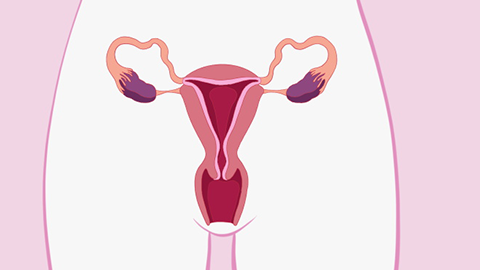What does it mean to have a thickened uterine wall?
Generally, thickening of the uterine wall may be caused by factors such as secretory phase changes during the menstrual cycle, pregnancy, simple endometrial hyperplasia, adenomyosis, and polycystic ovary syndrome. It is recommended to seek timely medical consultation to determine the exact cause and receive appropriate treatment under a physician's guidance. Detailed explanations are as follows:

1. Secretory Phase Changes During the Menstrual Cycle: During the menstrual cycle, the endometrium thickens under hormonal influence in preparation for embryo implantation, which is a normal physiological phenomenon. The endometrium sheds and becomes thinner once menstruation begins. No special treatment is required; however, it is important to monitor whether the menstrual cycle is regular and maintain healthy lifestyle habits.
2. Pregnancy: Following conception, the endometrium continues to thicken to support embryonic development and provide nutrition to the fetus, which is a normal physiological response. This may be accompanied by symptoms of early pregnancy such as amenorrhea and nausea. Once pregnancy is confirmed, regular prenatal checkups are necessary, along with folic acid supplementation, avoiding strenuous physical activity, and ensuring adequate nutritional intake to support normal embryonic development.
3. Simple Endometrial Hyperplasia: Prolonged estrogen stimulation without sufficient progesterone can lead to excessive proliferation of the endometrium, resulting in thickening of the uterine wall, which may be accompanied by menstrual irregularities. Patients may follow medical advice to use hormonal medications such as progesterone soft capsules, dydrogesterone tablets, or medroxyprogesterone acetate tablets to regulate hormone levels and promote endometrial shedding. Regular ultrasound follow-ups are necessary to monitor endometrial thickness.
4. Adenomyosis: The invasion of endometrial tissue into the myometrium causes thickening of the uterine muscle layer and overall enlargement of the uterus, resulting in thickening of the uterine wall. This condition is often accompanied by dysmenorrhea and heavy menstrual bleeding. Patients may follow medical advice to use medications such as norethisterone tablets, gestrinone capsules, or ibuprofen sustained-release capsules to alleviate symptoms. In severe cases, surgical removal of the lesion may be necessary to excise ectopic endometrial tissue and relieve thickening and pain.
5. Polycystic Ovary Syndrome (PCOS): Ovulatory dysfunction leads to continuous estrogenic stimulation of the endometrium, resulting in endometrial thickening and a thickened uterine wall, often accompanied by oligomenorrhea and hirsutism. Patients may follow medical advice to use medications such as ethinylestradiol cyproterone acetate tablets, spironolactone tablets, or metformin hydrochloride tablets to regulate hormones and metabolism, control body weight, reduce intake of high-sugar and high-fat foods, and engage in appropriate physical activity to improve ovarian function.
In daily life, maintaining a regular sleep schedule, avoiding late nights, reducing mental stress, and practicing good menstrual hygiene are essential. Regular gynecological examinations should be conducted to detect abnormal thickening of the uterus early and implement timely interventions to prevent disease progression.




